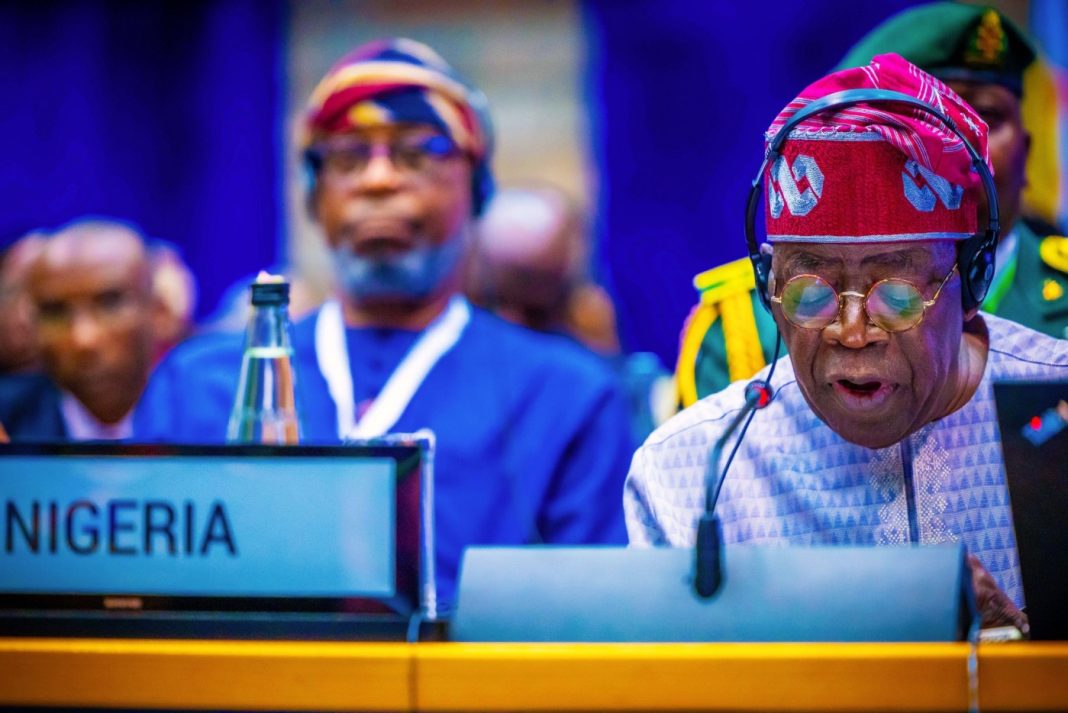ABUJA, Nigeria — The prospect of a military intervention in Niger Republic initiated by Nigeria has sparked debates among the Nigerian Senate, security experts, and the public regarding the potential economic, diplomatic, and regional security costs.
Despite being urged by the Economic Community of West Africa States, ECOWAS, the Senate rejected President Bola Tinubu’s proposition to deploy Nigerian troops to Niger to restore democracy following a disruptive coup d’état.
Security analysts and financial experts have predicted that such military engagement could significantly drain Nigeria’s Gross Domestic Production, GDP.
The nation committed 13.4% of its GDP (around N2.98 trillion) to defense in 2023.
The global average spending in countries at war is between 23.5% and 59.1% of their GDP, so Nigeria’s potential military intervention could double its current defense spending.
The Senate President, Godswill Akpabio, proposed on Saturday, August 5, 2023, a political solution to the crisis instead of military involvement.
Akpabio noted that President Tinubu’s plan to execute an ECOWAS mandate to deploy troops in Niger might not have considered such a move’s significant potential costs and risks.
Concerns about the ramifications of military action extend beyond fiscal worries.
Experts have warned Nigeria to consider the escalating jihadist activity in the Sahel region, potential geopolitical challenges, and the state of its own local economy before opting for military action.
Notably, Nigeria’s previous peacekeeping operations in Liberia, which were projected to last six months, ended up lasting seven years, costing the nation $8 billion and resulting in the loss of 500 soldiers.
“The crisis in Niger is far from straightforward. Military-ruled Niger and other ‘rogue nations’ are dislodging footprints of the West based on the support from Russia and China. It is not unlikely that the Wagner mercenaries from Russia may egg on the military head in Niger, General Abdourahamane Tichiani, in the event of military threat from Nigeria,” a regional security expert stated.
Stakeholders worry that a war could exacerbate regional instability and undermine joint efforts in combatting insurgency.
A military faceoff could spell doom for Nigeria’s economy and regional security, emphasizing the need for diplomatic solutions.
Dennis Amachree, a former Director of the Nigerian Secret Police, said, “We should importantly never forget that most of the gatemen and sellers of convenient items at street corners (Aboki) are Nigeriens. There must be an elaborate security plan on how to contain them in case of an outbreak of war.”
However, international security analyst Wilson Esangbedo argued that war might be the only option for Nigeria to maintain order and safeguard its own democracy.
He contended, “The cost of going to war will be negligible given the effect of not going to war, because our democracy will be destroyed. There will be no economic implication if we go to war because the world powers are in support of our actions and they will support this move financially, even if we don’t ask for aid.”
As the crisis unfolds, the weight of the decision on Nigeria’s shoulders grows heavier, leaving the nation and its leaders grappling with a complex diplomatic conundrum that could shape the region’s future.







